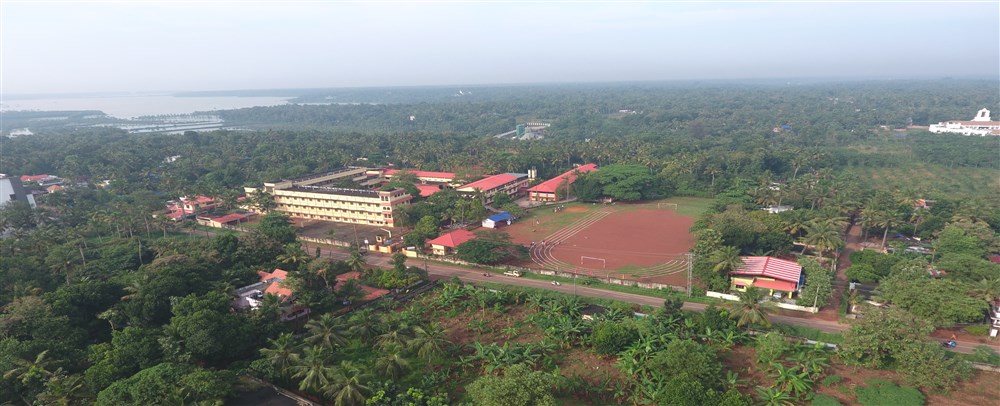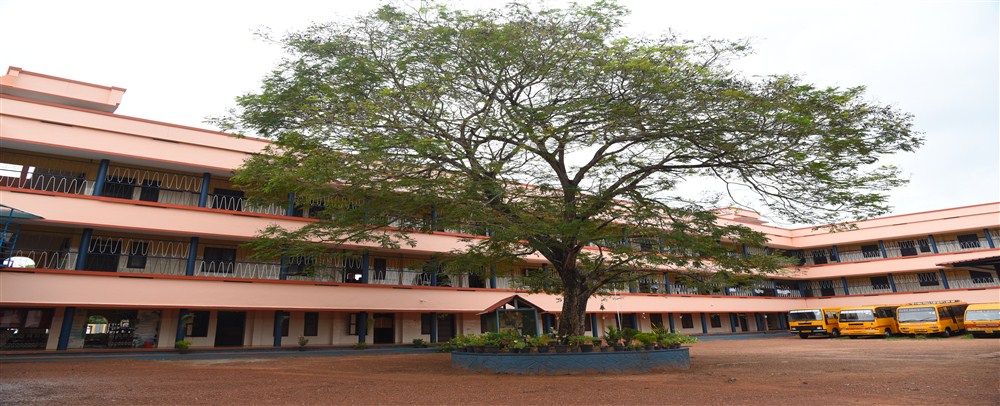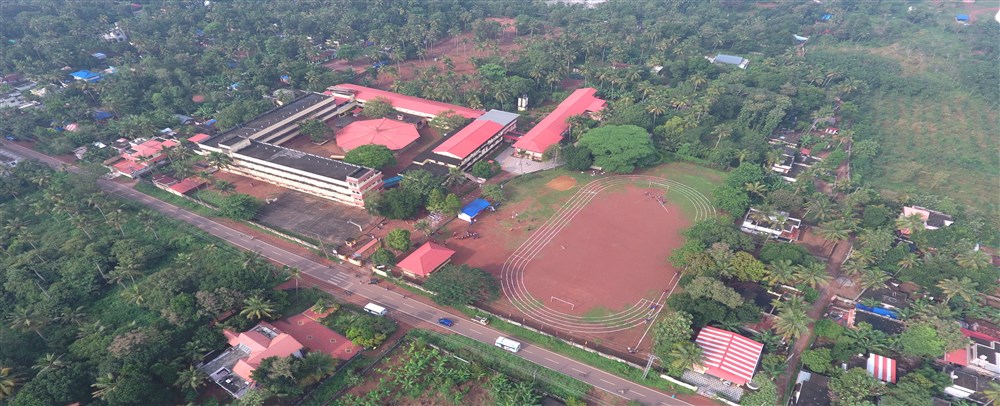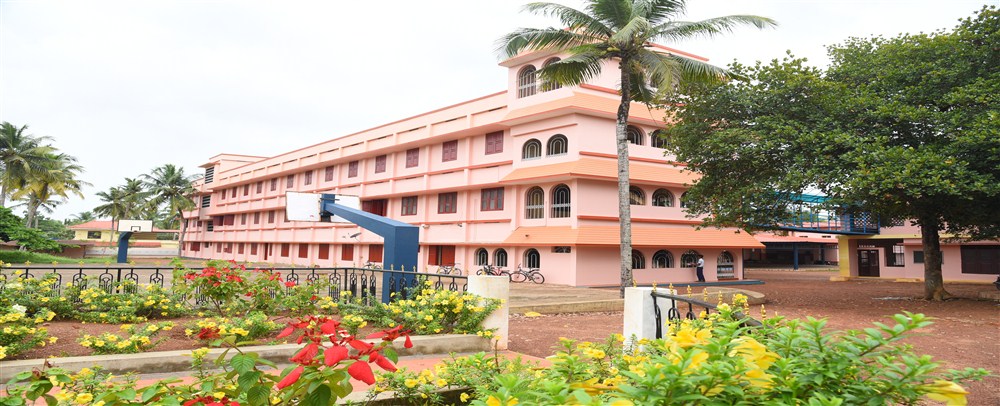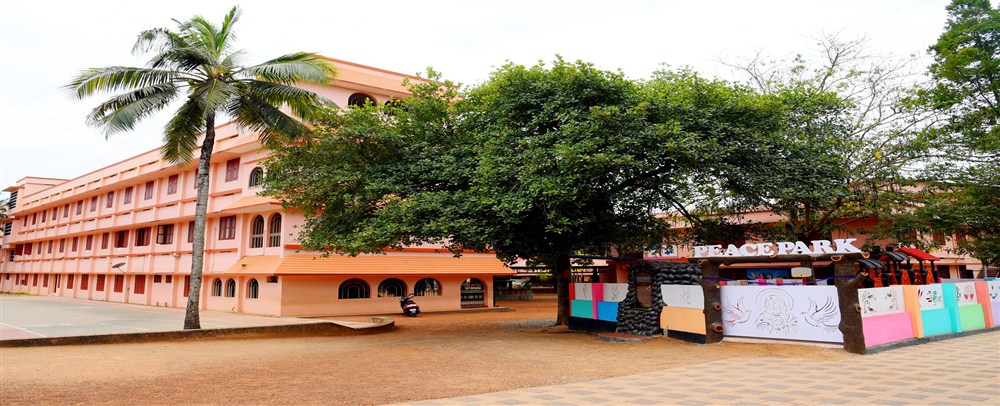

Saint John Bosco (16 August 1815 – 31 January 1888), born Giovanni Melchiorre Bosco, also called Don Bosco, was an Italian Catholic priest and educator, who put into practice the convictions of his religion, dedicating his life to the upliftment and education of poor youngsters, and employing teaching methods based on love rather than punishment. His Educational system known as preventive system is based on reason, God consciousness and loving kindness.
He also founded, together with Maria DomenicaMazzarello, the Institute of the Daughters of Mary Help of Christians, a religious congregation of nuns dedicated to the care and education of girls, and popularly known as Salesian Sisters. It was founded on 5th August 1872 in Mornese, Alessandria ,Italy. Today it has world wide net work of educational institutions in 92 nations. The Salesian Fathers arrived in India for the first time on January 14, 1906. The first group of Salesian Sisters arrived in India (Chennai ) on November 22, 1922, when the institute was celebrating the golden jubilee of its foundation. The first Salesian Sisters ventured into all types of Educational activities both formal and non-formal, health-care services and social initiatives, giving appropriate responses especially directing their attention to the less privileged and marginalized.During the 95 years of their presence in India the Salesian sisters have grown into a gigantic tree, spreading its branches to all parts of India. They now have 6 Provinces and 170 centers and educational institutions.
In response to the invitation of Bishop of Kollam Rt Rev. Dr. Jerome Fernandez the salesian sisters arrived in Kottiyam , 12 km south of Kollam railway station and falls within the jurisdiction of Adichanalloor Panchayat of Kollam Taluk in Kollam district on 24th January 1977. The small but enthusiastic band that set foot on the kerala soil for the inauguration of FMA work in Kottiyam consisted of Mother Merlo Teresa, one of the pioneer missionaries of India, Rev Mother Fernandez Helen, the Provincial, Rev. Sr. Thomas Rosa, provincial economer , the two sisters Sr.Pereira Josephine and Sr.Thekekandathil Anna who were to be pioneers of this Institute. In answer to the repeated request of the parents of the locality Auxilium English Medium school was opened in June 1989. The present principal of the School is Sr Jancy Augustine . Being a Don Bosco institution, the school promotes cultural activities and sports along with academics. The school gained limelight during the academic year 1999-2000 when it emerged winners at the ICSE/ISC State Athletics Meet held at Mavelikkara for the first time in history. The school had an impressive record in the state ICSE/ISC school athletic meets over the years. The students from the school have consecutively represented Kerala in the National ICSE/ISC Athletic meet for the past 27 years. The alumni of the school have made their mark in the various fields. The past pupils association is a major wing of the school, active in all major activities of the school and the management. Representatives of the past pupils association attends the annual planning meeting of the Bengaluru Province (Karnataka, Kerala and Andhra Pradesh) of the Salesian Sisters Institutions. The annual past pupils meet of the school is held on December 26 every year.
PREVENTIVE SYSTEM OF EDUCATION
In the Salesian Schools of the Daughters of Mary Help of Christians, the FMA (Salesian Sisters), teachers and staff, the parents and the students form the Educating Community whose primary role is indispensable in forming the young to become builders of the society ,men and women of conscience, commitment and competence.
The faculty and the staff of the school are trained to carry out the educative work using the Preventive System which is the hallmark of all our institutions.
In education, prevention means, ‘taking away those negative experiences which could seriously harm the youth’s growth and to equip the young person with the means to independently encounter what life offers;’ ‘prevention in a sense of creating an ambient in which the young person grows in making choices and imbibing values spontaneously because of the models that he/she sees in his/her educators and companions, who are like forerunners.
For Don Bosco, education is a sacrifice. The educator has to be ready to lay down his life for the young person so that his uniqueness and innate positive goodness would shine forth for the building of God’s kingdom. He formulated his programme for boys in simple but meaningful statements. He spoke of forming “good Christians and upright citizens”; he set his sights on the “health, wisdom and holiness” of his boys, and proposed a lifestyle comprising “cheerfulness, study and piety.” What Don Bosco did for his boys, he desire to do for the girls, through Maria Domenica Mazzarello.
Don Bosco recognized the great educational abilities of Mary Domenica, welcoming in her the woman who, guided by the Spirit, can realize for young women what the Salesian were already accomplishing for young men.
Mary Domenica became the person, together with Don Bosco, through whom the Spirit gave birth to the Institute of the Daughters of Mary Help of Christians, which is the feminine expression of the spirituality and mission of the Salesian Congregation.
THE METHOD
In Don Bosco’s own words, “this system is based entirely on Reason, Religion and Loving – Kindness”.
Reason stands for a wise and progressive enlightenment of the minds of the young, opening them to the world, to culture, to the realities of life and the appeal of values. Reason also implies a clear enlightenment of the mind on the truths concerning God and moral behavior by a sound and systematic teaching of moral conscience.
In dealing with the young, reason also signifies reasonableness, good sense, simplicity, and avoidance of anything artificial. The rules of good behavior to be inculcated must be reasonable and essential; they must be clearly explained, and their necessity and value must be patiently explained, and their necessity and value must be patiently brought home to the young. Reason in this context also means persuasiveness and dialogue, and formation of the conscience to personal responsibility and freedom.
Religion provides the motivation, the ultimate meaning, significance and orientation of a project of life governed by Reason. For Don Bosco, the will – educated mature person is one who places at the apex of all his knowledge, the knowledge of God; at the summit of his life – project, his eternal happiness with God; and at the center of his personal conscience, submission to the will of God.
Loving Kindness is rooted in the charity of the Good Shepherd. It is the key that gives access to the heart of every young person. There are very few people who rebel in the face of genuine goodness. One gets discipline with a blend of kindness and firmness, and by never asking what is above the strength of the child. If the educators acts differently she/he frustrates the child instead of helping her/him find the freedom of the children of God. Loving – kindness in order to have a true educational value must be based on a healthy equilibrium, which, while surrounding the child with a genuine and heart – felt love, avoids every form of false affection, and renders the teacher – pupil relationship a shared search for true values. Don Bosco’s philosophy of education is summarized in this principle, which explains, justifies and actuates it: “Education is matter of the heart.”











